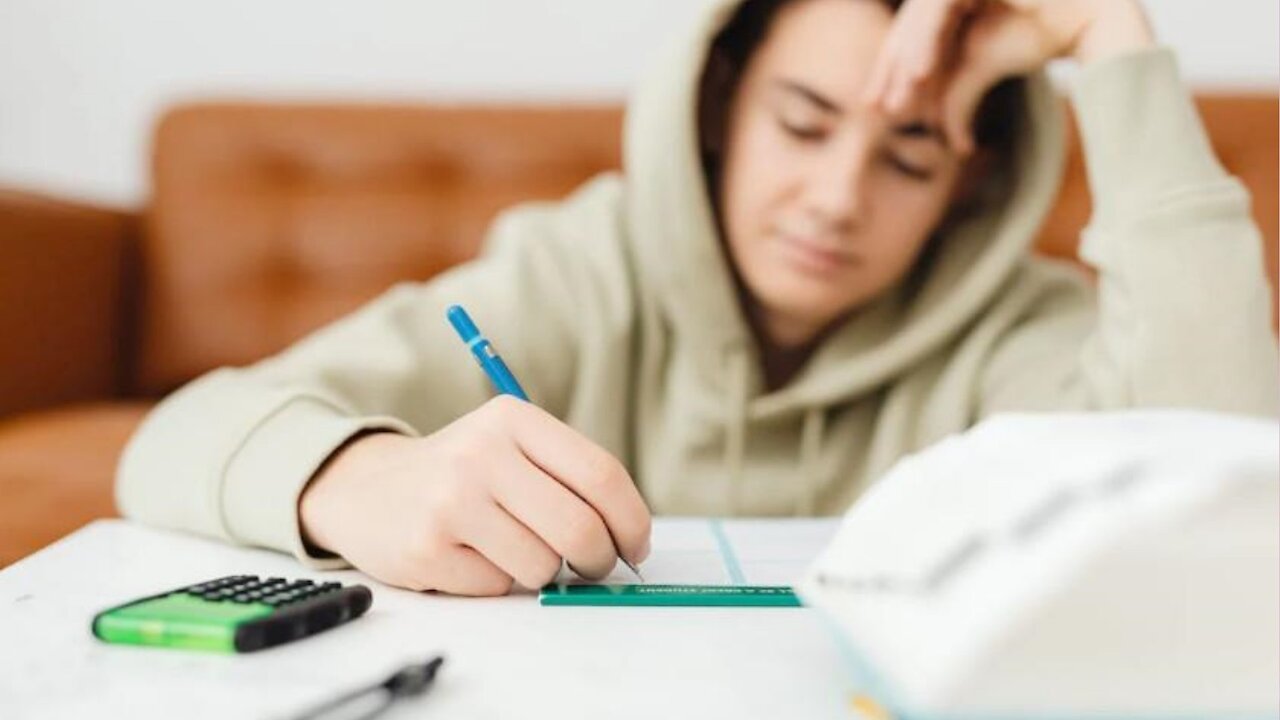Premium Only Content

Pandemic Learning Loss Could Cost Students $70,000 Each in Their Lifetimes
Pandemic Learning Loss Could Cost Students $70,000 Each in Their Lifetimes
Students enrolled during the pandemic could earn up to $70,000 less in income throughout their lifetime compared to peers who graduated before schools were temporarily closed, according to a study by a Stanford University economist.
The study, conducted by Eric A. Hanushek, found that the hiccup in steady education could cause students to earn 5.6% less than they would have before the pandemic as these students are more likely to be less educated and more underprepared for adulthood. This results from time lost in the classroom during the pandemic as schools were forced to close and/or operate online.
“Extensive research demonstrates a simple fact: those with higher achievement and greater cognitive skills earn more,” the study reads. “The evidence suggests that the value of higher achievement persists across a student’s entire work life.” Hanushek cited a sharp decline in eighth-grade national math scores between 2019-2022, during which scores dropped an average of eight points, according to the National Assessment of Educational Progress (NAEP). This is the largest decrease reported by the NAEP in its 32-year history, The Wall Street Journal reported.
The average score for fourth-graders dropped by five points, according to the assessment.
Kevin J. Dykema, National Council of Teachers of Mathematics president, told the WSJ that students are struggling to keep up with math lessons because they were encouraged to memorize information during the pandemic rather than learn concepts. He also said that students are struggling to work in group settings and often require more tutoring.
“It’s because they were used to just sitting in front of a computer screen,” he said.
In total, students could lose up to $70,000 in lifetime earnings, according to The Wall Street Journal. The cumulative loss accumulated over the century could amount to $28 trillion.
At the beginning of 2020, 77% of public elementary and secondary schools moved to a remote setting, the National Center for Education Statistics reported. Additionally, 26% of adults with school-aged children claimed that their student attended tutoring sessions or summer programs during summer 2021 to make up for learning losses.
Hanushek, NAEP and the National Council of Teachers of Mathematics did not immediately respond to the Daily Caller News Foundation’s request for comment.
-
 3:11
3:11
Top Usa NEWS FEEDER
2 years agoIdaho Supreme Court Finds No ‘Explicit Right’ to Abortion, Upholds Ban
160 -
 LIVE
LIVE
GritsGG
2 hours agoWin Streaking! Most Wins 3390+ 🧠
390 watching -
 LIVE
LIVE
Matt Kohrs
9 hours agoLIVE! Day Trading Futures & Options || Market Open
957 watching -
 LIVE
LIVE
Wendy Bell Radio
6 hours agoThe Ultimate Alpha
7,590 watching -
 LIVE
LIVE
Reidboyy
2 hours agoNEW FREE FPS OUT ON CONSOLE TODAY! (Delta Force = BF6 Jr.)
59 watching -
 LIVE
LIVE
RoxomTV
19 days agoMAX KAISER & STACY HERBERT LIVE — Bitcoin Reborn | 24/7 from RoxomTV
202 watching -
 LIVE
LIVE
Badlands Media
1 hour agoBadlands Daily: August 19
3,905 watching -
 LIVE
LIVE
EXPBLESS
2 hours agoMessing Around In Elden Ring Finding All Caves And Hidden Secrets.
61 watching -
 LIVE
LIVE
The Mike Schwartz Show
2 hours agoTHE MIKE SCHWARTZ SHOW with DR. MICHAEL J SCHWARTZ 08-19-2025
2,287 watching -
 LIVE
LIVE
FusedAegisTV
10 hours agogamescom 2025 & Kirby Air Rider's Direct REACTION 8.19.2025 | FusedAegis Presents
127 watching